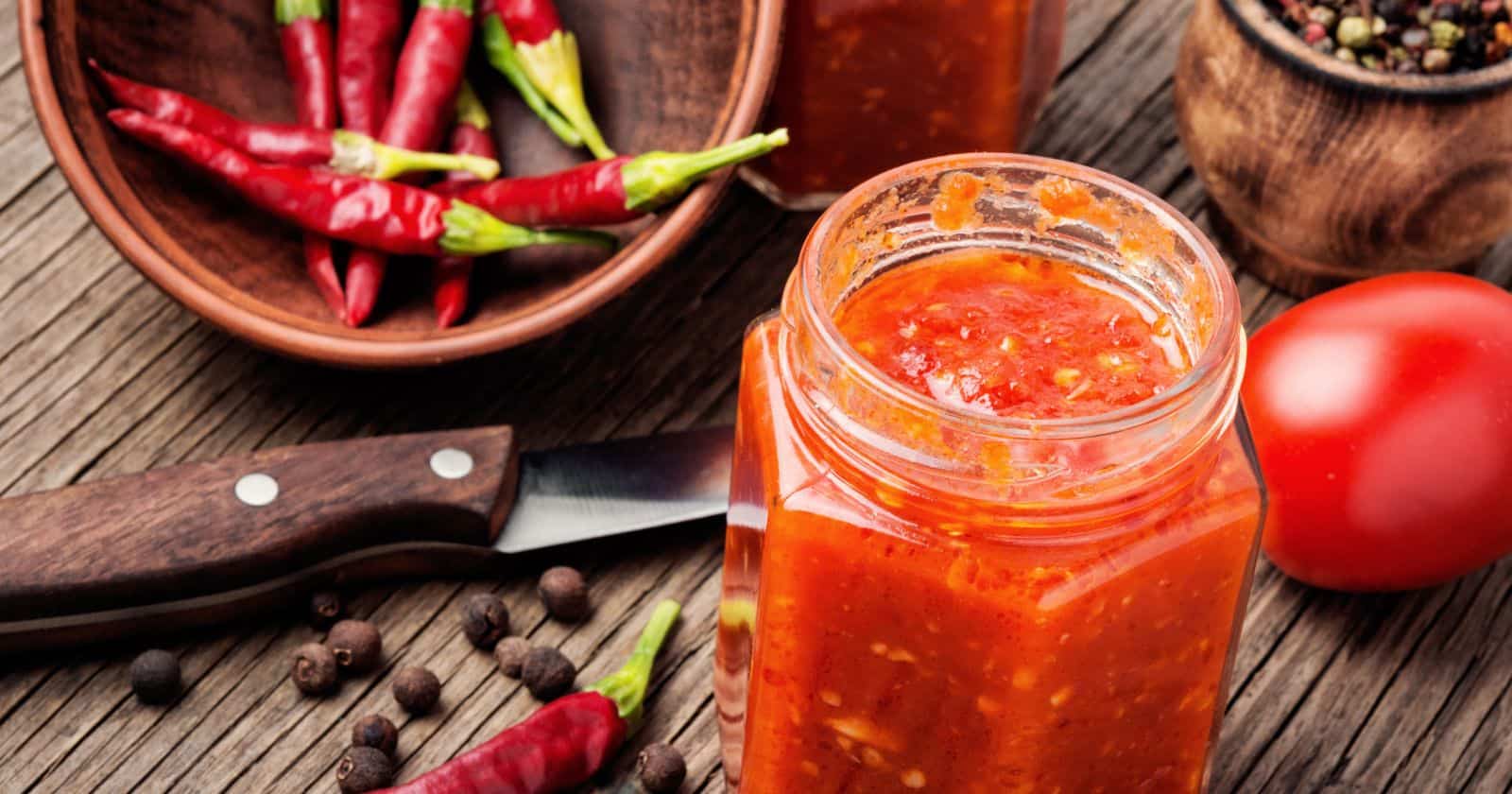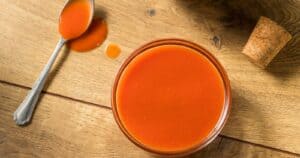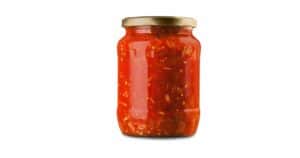Nothing ruins a meal like food poisoning. That queasy, feverish feeling after eating contaminated food can really spoil your day. But what if there was a secret weapon against bacteria lurking in your pantry? Hot sauce has recently garnered attention for its potential antibacterial superpowers. Could a splash of chili pepper heat actually stop foodborne illnesses in their tracks?
The prospect of warding off harmful bacteria just by spicing up your plate is certainly tantalizing. But before you start drizzling Sriracha on everything, let’s take a closer look at the evidence. The antimicrobial properties of hot sauce are complicated and depend on many factors.
While hot peppers contain compounds shown to fight some bacteria in lab studies, real world results may vary. The jury is still out on how effectively hot sauce inhibits pathogens in the human body. Like many aspects of nutrition science, more research is needed.
One thing is clear – hot sauce should never replace safe food handling practices. At best, it may provide an extra layer of defense against unwelcome microbes. But it’s not a magic bullet against food poisoning. As we’ll explore, hot sauce may have some antibacterial benefits, but many questions remain. The key is balancing the heat with realistic expectations.
Does Hot Sauce Contain Antibacterial Compounds?
The antibacterial reputation of hot sauce stems largely from one key ingredient – chili peppers. Peppers contain a plant compound called capsaicin which gives them their characteristic heat.
In addition to triggering a spicy burn, capsaicin has displayed antibacterial properties in some laboratory tests. Other compounds found in hot sauce, like vinegar, may also contribute to antimicrobial effects.
Some bacteria shown to be inhibited by capsaicin in lab settings include:
- Escherichia coli
- Bacillus cereus
- Staphylococcus aureus
- Pseudomonas aeruginosa
However, these findings involved direct application of capsaicin to cultures in a Petri dish. Effects inside the complex human body remain uncertain.
Potential Antibacterial Mechanisms of Hot Sauce
Researchers are still investigating exactly how compounds like capsaicin exert antimicrobial actions. Some proposed mechanisms include:
- Disrupting bacterial cell membrane integrity
- Altering genes that control essential bacterial functions
- Stimulating oxygen stress responses in bacteria
- Interfering with cellular metabolism and energy production
By damaging bacterial cell structures, signaling pathways, and vital processes, hot sauce components may be able to suppress microbial growth or kill bacteria outright. More research is underway to better understand these pathways.
What Does Research Say About Hot Sauce Killing Bacteria in Humans?
Evidence for hot sauce’s antibacterial prowess comes mainly from in vitro lab studies. But does consuming hot sauce actually thwart infections in the human body? Fewer studies exist exploring this question.
Some promising, though limited, research suggests that ingesting spicy foods may inhibit harmful bacteria:
- One small study found eating spicy meals appeared to have antibacterial effects in the gut against common foodborne pathogens.
- An animal study showed mice fed capsaicin had reduced Campylobacter jejuni levels.
- Adding chili powder to food prevented cholera toxin production in an in vitro model of small intestine cells.
However, the real-world antibacterial efficacy of regularly eating spicy foods remains to be confirmed. Well-designed human clinical trials are still needed.
Potential Risks and Considerations of Relying on Hot Sauce for Antibacterial Benefits
Despite intriguing preliminary indications, relying solely on hot sauce to prevent food poisoning has potential downsides:
- Unclear effective dosing and frequencies needed for antibacterial benefits in humans
- Contradictory evidence on whether capsaicin impairs or enhances gut microbiota
- Possible increased risk of gastric ulcers, heartburn, and other gastrointestinal issues
- Unrealistic expectations of protection beyond basic food safety practices
- Antibacterial potency depends heavily on specific type and concentration of bacteria
Hot sauce may offer supplementary antimicrobial benefits, but should not replace proper food handling, cooking, and hygiene practices which are the ultimate barricade against foodborne pathogens.
Expert Guidance on Using Hot Sauce to Prevent Foodborne Illness
Given the limitations of current evidence, what do food safety experts recommend regarding hot sauce for antibacterial purposes?
- “Always adhere to safe food preparation guidelines – don’t solely depend on hot sauce to prevent food poisoning.”
- “Incorporating hot sauce may provide marginal supplemental protection, but thorough cooking and avoiding cross-contamination are paramount.”
- “It’s reasonable to use hot sauce in addition to, not instead of, proper food handling practices for a potential added layer of defense.”
- “More human data is needed before recommending hot sauce specifically to reduce bacterial infections. For now, it’s reasonable to include it as part of an overall healthy diet.”
The consensus seems to be that while hot sauce shows some promise for antibacterial properties, it should not replace proven food safety principles.
Natural Antibacterial Alternatives to Hot Sauce
Hot sauce is not the only food with antimicrobial effects. Some other natural ingredients may also help inhibit pathogens:
Herbs and Spices
- Oregano
- Cinnamon
- Garlic
- Ginger
- Cloves
Fruits and Vegetables
- Cranberries
- Onions
- Berries
- Fermented foods like kimchi and sauerkraut
Probiotics
- Yogurt
- Kefir
- Kombucha
These provide antibacterial benefits without the risks of overdoing spicy hot sauce. Use them alongside proper food handling for optimal protection.
Safe Food Handling Tips That Should Not Be Replaced by Hot Sauce
To truly minimize your risk of food poisoning, adhere to these evidence-based practices:
- Cook foods, especially meat, thoroughly to safe internal temperatures
- Avoid cross-contamination between raw and cooked foods
- Wash hands, surfaces, and cooking tools thoroughly
- Refrigerate perishable foods promptly; don’t leave sitting out
- Avoid risky foods like unpasteurized dairy if immunocompromised
- Check expiration dates and discard old foods
- Thaw frozen foods safely – not at room temperature
Relying solely on hot sauce instead of these proven methods invites danger. Use as an optional supplemental aid, not a guaranteed pathogen panacea.
Should You Take Antibacterial Hot Sauce Supplements?
Some capsaicin extracts are sold in concentrated pill or liquid form marketed specifically for antimicrobial benefits. However, these present some concerns:
- Bypasses protective effects of whole foods
- Very little evidence for efficacy in humans
- Risk of exceeding safe doses
- Can cause stomach irritation or damage
- Unknown long-term safety
- Unregulated quality and purity
Whole, natural hot sauces are the safer choice vs. purified capsaicin extracts if seeking antibacterial properties along with other benefits of peppers.
Putting Hot Sauce’s Antibacterial Benefits Into Perspective
Here’s a realistic summary of the evidence on hot sauce as an antibacterial agent:
- Lab studies show compounds like capsaicin can inhibit some bacterial strains
- Early human research shows some promising but limited antibacterial effects
- Should not replace or outweigh basic food safety principles
- May provide supplementary protection against pathogens when used moderately
- More data from human clinical trials is needed to make firm conclusions
While unlikely to be a magic bullet against food poisoning on its own, as part of a comprehensive food safety strategy, hot sauce may be able to lend a helping hand against harmful mealtime microbes.
The Takeaway – Use Hot Sauce Prudently for Potential Antibacterial Benefits
Science suggests hot sauce may be mildly antimicrobial, but protecting your food goes far beyond drizzling Sriracha. Adhere to proven safety guidelines first and foremost. When used prudently alongside smart practices, hot sauce can potentially lend supplemental antibacterial benefits – not magical immunity. Balance the heat by keeping realistic expectations.
FAQs About Hot Sauce and Bacteria
1. How much hot sauce do you need to eat to kill bacteria?
There is no established effective dose. Any antibacterial benefits would depend on the specific bacteria, concentration of capsaicin, and individual factors. Moderation is recommended.
2. Does putting hot sauce on food make it safer to eat?
No, hot sauce does not make unsafe food safe to eat. Always practice proper food handling and cooking first and foremost. Hot sauce may provide minimal supplemental protection.
3. Can you add hot sauce to foods to stop food poisoning?
Hot sauce alone cannot reliably prevent foodborne illness. While it may have mild antibacterial properties, it is not a substitute for cooking foods thoroughly, avoiding cross-contamination, and proper storage.
4. Will hot sauce kill all the bacteria that cause food poisoning?
No, research has only shown effects against some strains of bacteria so far. Hot sauce cannot kill all dangerous foodborne pathogens or make improperly handled foods safe.
5. Is it safe to eat hot sauce every day to prevent bacterial infections?
Daily hot sauce carries risks like gastrointestinal issues. Due to limited evidence, hot sauce is not recommended specifically for regular antibacterial use but can be enjoyed moderately as part of an overall healthy diet.
The bottom line is hot sauce should not replace evidence-based food safety principles. While compounds like capsaicin show some promising antibacterial activity, more research is needed, and effects depend greatly on the specific bacteria. Exercise caution when using hot sauce for antimicrobial purposes.





